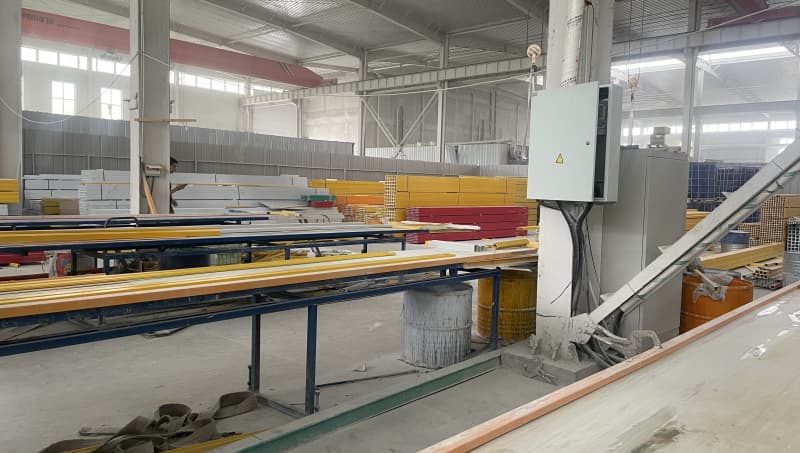The power industry demands materials that combine durability, insulation, and corrosion resistance. FRP pultruded profiles meet these needs while reducing lifecycle costs by 30-50% compared to traditional materials.
 1. Core Applications & Benefits
1. Core Applications & Benefits
- Transmission & Distribution:
- Insulator Crossarms: Replace wooden/steel arms in high-voltage lines. Case: In 2023, China’s State Grid deployed FRP crossarms across 500+ substations, cutting maintenance by 40%.
- Cable Trays: Non-conductive trays prevent short circuits. Case: Germany’s E.ON reduced fire risks by 60% in renewable energy plants.
- Renewable Energy:
- Solar Farm Structures: UV-resistant FRP mounts outlast aluminum in desert projects (e.g., Dubai’s 2GW Mohammed bin Rashid Park).
- Wind Turbine Walkways: Lightweight profiles ease offshore installation (Vestas’ North Sea projects).
2. Technical Advantages
- Dielectric Strength: Withstands 100kV+ without conductivity risks (ASTM D149).
- Corrosion Resistance: Survives coastal salt spray (ISO 9227 certified).
- Customization: Profiles engineered for specific load/span requirements (e.g., 8m-span lattice towers in India).
3. Implementation Roadmap
- Audit: Identify corrosion-prone/overloaded assets (e.g., transformer supports).
- Design: Partner with manufacturers for load-optimized profiles.
- Install: Train crews via certified programs (e.g., Siemens Energy’s FRP adoption toolkit).
Future Outlook: FRP adoption in smart grids and HVDC projects is projected to grow 12% annually (GlobalData 2025).
 1. Core Applications & Benefits
1. Core Applications & Benefits